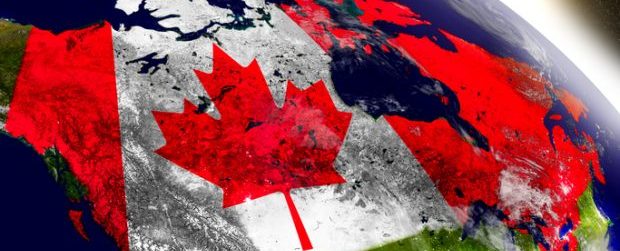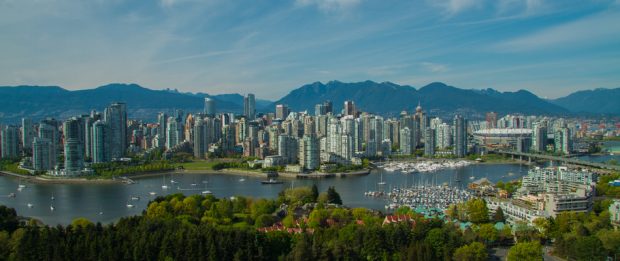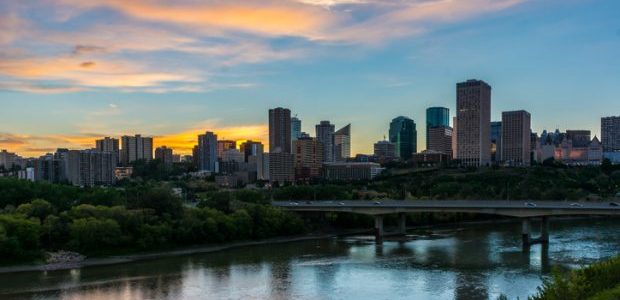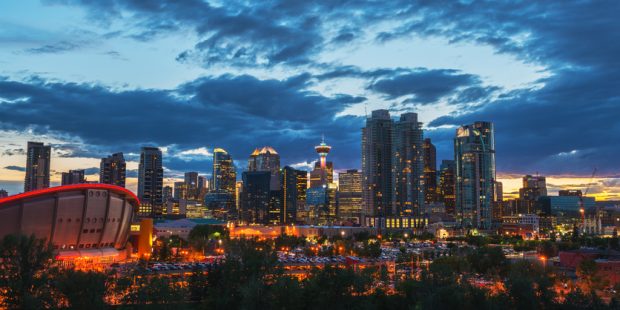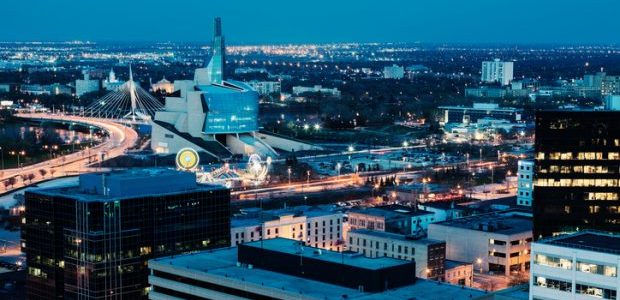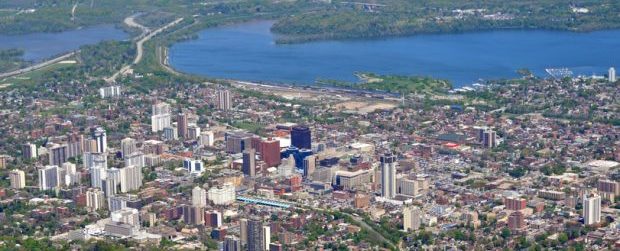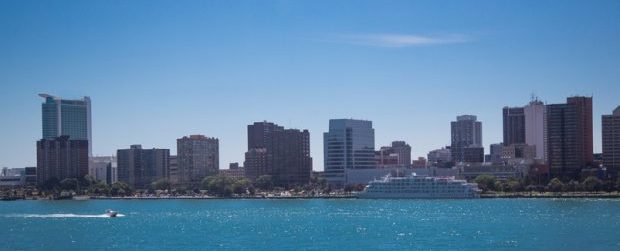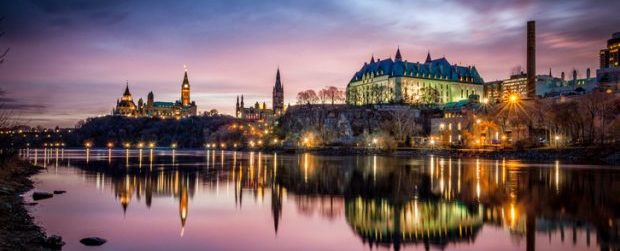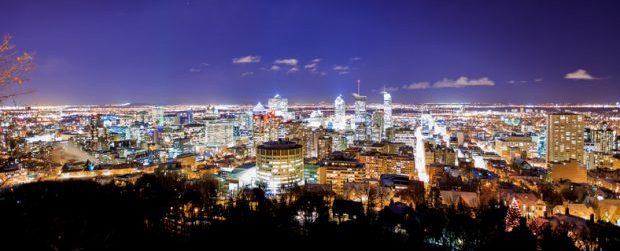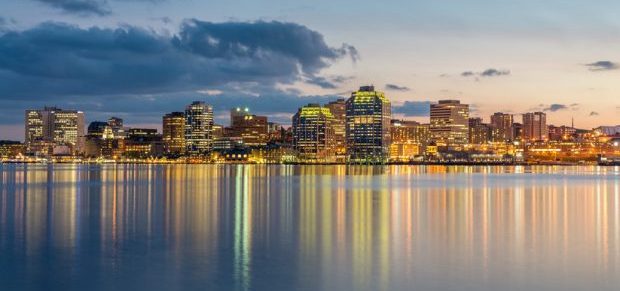11 Canadian cities bidding for Amazon’s second headquarters
Let the games begin! Amazon recently announced it is looking to build a second global headquarters (HQ2) somewhere in North America to supplement its Seattle home base, and with its Oct. 19 deadline for proposals come and gone, the company has confirmed it received 238 proposals from cities in three countries, including 45 US states, six Canadian provinces, and three Mexican states. The proposed $5 billion (USD) project is expected to generate up to 50,000 high paying jobs. Amazon’s wishlist includes a city with a metropolitan area of at least a million people, close proximity to an international airport, reliable mass transit, the ability to attract top technical talent, financial incentives, and the space to expand the headquarters to as much as eight million square feet in the next decade. In Canada, 11 cities submitted applications for HQ2; let’s take a look at their bids.
Vancouver
Vancouver expressed interest in Amazon’s HQ2 from day one, basing its bid on its geographical proximity to HQ1, and the availability of a world-class tech ecosystem and top tech talent. The city is not offering additional cash incentives, but “built-in” incentives in the real estate, healthcare, and labour areas, according to the Vancouver Economic Commission. Vancouver’s bid included a 500,000 square-foot space for the first phase of the project, and more space for second and third phases.
Edmonton
Edmonton has kept quiet on its bid details, saying it doesn’t want to show its hand before the final decision and that the application contains confidential private sector information. However, the Edmonton Journal has reported that 10 to 15 city staff collaborated to put forth a proposal that highlights the talent in the city, its growing tech sector – particularly around artificial intelligence – stable economic growth, and the strength of local post-secondary institutions like the University of Alberta.
Calgary
Calgary is trying to woo Amazon with a high-profile marketing campaign that included a full-page ad in the Seattle Times promising to protect the company from bears should it ever come to that, a 35-metre banner on a building near HQ1, and chalk messages drawn on downtown Seattle sidewalks. Beyond the showboating, Calgary boasts a lot of available office space, a high quality of life, and good transportation options.
Winnipeg
The Manitoba government has released its 66-page proposal, tailoring its pitch to Amazon’s frugality with its low energy bills, low cost of doing business compared to other Canadian cities, inexpensive housing, and financial incentives and tax credits the company could qualify for worth as much as $1.7 billion (CAD). It also points out the easily accessible untouched wildlife areas, its geographic location at the centre of North America, and fun facts like how Winnipeg inspired the beloved children’s character Winnie the Pooh and that research conducted in the city led to the Ebola vaccine in 2015. The city has also pitched two possible building locations.
Sault Ste. Marie
A joint submission with its Michigan counterpart from across the St. Marys River, Sault Ste. Marie’s bid revolves around the business benefits and competitive advantages of the Twin Saults straddling the border of two countries, as well as its close-knit community feel. The cities’ close proximity to nature and cottage country is also a selling point, along with its location sitting above the whole eastern market. The city can also meet all of Amazon’s logistical and warehousing needs, and has no rush hour, no smog, and very little crime compared to other Canadian cities.
Toronto
Toronto has expanded its bid to include the Greater Toronto Area, stretching from Kitchener-Waterloo in the west to Durham Region in the east. The GTA’s proposal details 10 different sites that could meet Amazon’s needs, and while the province and city have made it clear it won’t offer any additional tax incentives or financial subsidies, Toronto’s position as the economic and technological centre of Canada will definitely aid its chances. Not only does it boast the Canadian headquarters of other tech giants like Google, it has several world-class post-secondary institutions, tech talent, existing tech-focused organizations, a multi-tiered transportation system, and a high-quality living environment.
Hamilton
Though many Toronto residents would consider Hamilton part of the GTA – both cities have their share of workers commuting from one to the other – this southern Ontario manufacturing town has thrown a hat of its own into the ring, spending some $500,000 on a bid for #Hamazon that, if nothing else, produced a memorable hashtag and killer video, titled “Welcome to Unstoppable.” According to CBC, Hamilton Mayor Fred Eisenberger already considers the money well spent, since information gathered for the bid can be used to woo companies other than Amazon.
Windsor
Like Sault Ste. Marie, Windsor is collaborating with a Michigan-based city on its bid, which officially encourages Amazon to set up shop in neighbouring Detroit. But the Motor City’s proximity to Windsor is key to its plan, with Detroit-born billionaire (and Quicken Loans Inc. founder) Dan Gilbert boasting that “Amazon will be able to draw employees from two countries rich in technology talent with diverse backgrounds while cementing it as the first major company in the world whose headquarters would literally share an international border,” according to CBC.
Ottawa
Next to Toronto, Canada’s capital has long been seen by experts such as former Amazon executive and Canadian expat James Thomson as the most competitive location north of the 49th parallel, thanks to its already-sizeable technology industry – home to possibly Canada’s best-known tech darling, Shopify Inc. – and tech-savvy workforce, having been the former home of onetime Canadian tech giant Nortel Networks Inc. And the city stepped up to the plate, collaborating with its economic development arm, Invest Ottawa, and neighbouring Gatineau on a bid showcasing an underdeveloped neighbourhood as an ideal location, though few other details have been released.
Montreal
Like Ottawa, Canada’s second-largest city made its pitch through its economic development arm, Montreal International, whose CEO Hubert Bolduc flew to Seattle to boast about the city’s substantial tech talent, lively cultural scene, and lower cost of living compared to other similarly-sized cities.
Halifax
Like Hamilton, Halifax Mayor Mike Savage has already said that regardless of the outcome, the Nova Scotia capital’s proposal represents a sound investment that will help attract more companies to its growing technology hub, admitting that if Amazon is solely considering financial incentives then Halifax is unlikely to be a leading player. The city’s metro area only has around 400,000 residents (Amazon has said it wanted to choose an area with more than 1 million), and its mass transit is limited to buses.
(With files from Eric Emin Wood)



